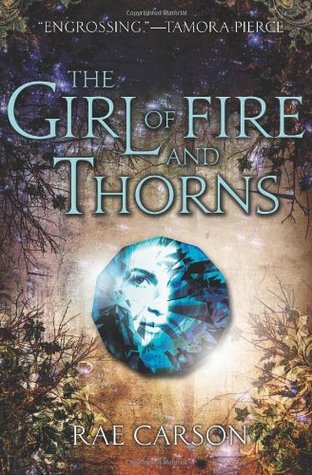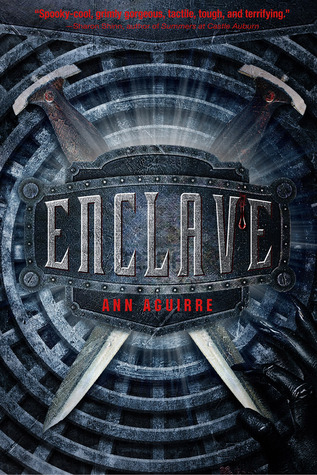 In general, a pretty good first book for a fantasy trilogy. I enjoyed the latin feel - including the use of Spanish (or at least a Spanish-influenced language). I also enjoyed the fact that Elisa starts off as this typical chubby, ineffectual princess and gradually becomes a strong, assertive leader. There was a strong religious element to the story, as well; again, it really worked well by creating a sort of Spanish Catholic feel (if that makes sense).
In general, a pretty good first book for a fantasy trilogy. I enjoyed the latin feel - including the use of Spanish (or at least a Spanish-influenced language). I also enjoyed the fact that Elisa starts off as this typical chubby, ineffectual princess and gradually becomes a strong, assertive leader. There was a strong religious element to the story, as well; again, it really worked well by creating a sort of Spanish Catholic feel (if that makes sense).The idea of Elisa being chosen by God, and marked as His with a Godstone jewel, was interesting. But having that jewel sticking out of her navel was just weird. And late in the book there's a really strange scene with the Godstone that just makes the story lose a lot of credibility. A true wtf moment.
I'm interested to see where the story goes, so I'll probably come back to this series when I have the chance. Not a must-read situation, but a good enough tale that I'm ready to give it some more attention.





